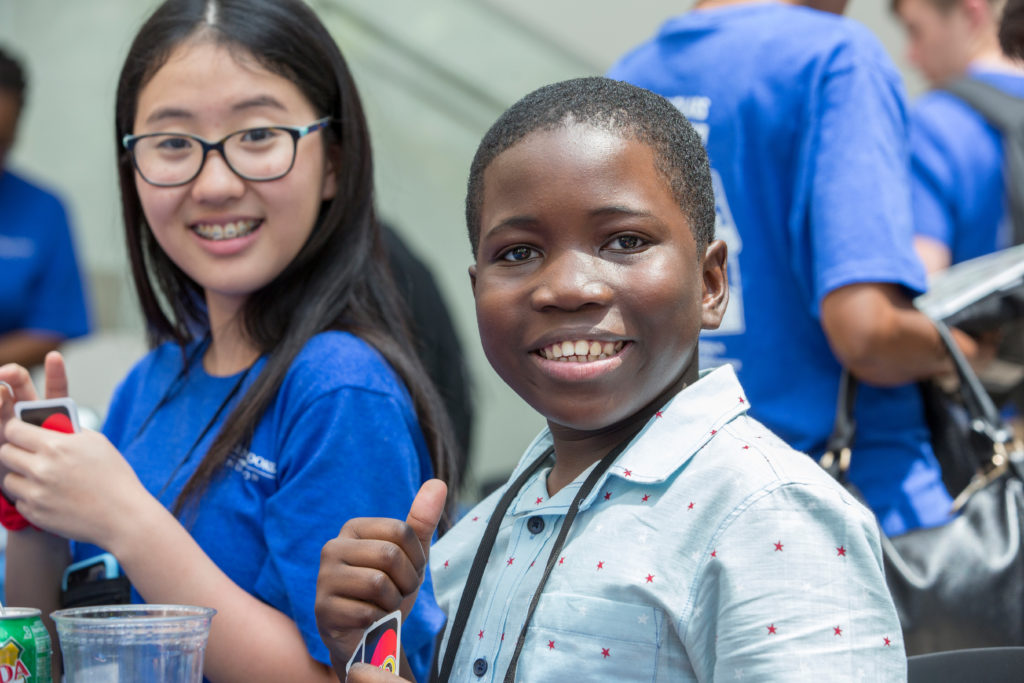Financial Need, Geography, & Educational Equity

January 10, 2019 – Here’s what we’re reading this week about the issues affecting high-achieving students. New initiatives across the country are focused on increasing equity in K-12 education. Similarly, higher education news shines light on the need to improve outcomes for rural students, women in STEM, and students with financial need.
The Cooke Young Scholars Program application opens this Monday! This selective five-year, pre-college scholarship provides comprehensive educational advising for high-performing 7th grade students with financial need, as well as Cooke-sponsored summer programs, internships, and other learning enrichment opportunities. Sign up to be emailed when the application opens.
Receive the Cooke Chronicle each week in your inbox: Subscribe here.
Elementary & Secondary Education:
- New York City recently rolled out new recommendations aimed at reforming gifted and talented education programs in their district, sparking a national conversation on the accessibility of specialized programs and schools for gifted students. The Economist explores this topic in depth, discussing what is at stake for gifted and talented programs in New York City, and how the district’s decision could impact similar programs across the country.
- A new initiative coming out of Chapel Hill Carrboro City Schools in North Carolina is rethinking the way that students are selected for gifted education programs. The News & Observer reports that adjustments, such as adding an interview portion to the selection process, significantly improved program diversity.
Higher Education:
- New research finds that over 10 million Americans in rural areas of the country are living in “education deserts,” meaning that they have no access to public institutions of higher education. The coverage in Inside Higher Ed discusses how continued efforts to subsidize public education often overlook the millions of students who do not live close enough to access schools benefiting from federal funding.
- Dr. Joyce Yen, a former engineering professor who serves as the Executive Director of University of Washington’s ADVANCE Center for Institutional Change, discusses the need to increase equity in STEM fellowships. In Diverse: Issues in Higher Education, she talks about how many factors, including inconsistent selection guidelines, contribute to a lack of equity, and outlines how some programs are taking important steps to address this.
- An article in The Chronicle of Higher Education explores the barriers that continue to make it challenging for students with financial need to succeed in college.
Cooke Foundation Highlights:
- New LinkedIn articles from Executive Director Seppy Basili continue to highlight important takeaways from the Foundation’s recent “Small Town, Big Talent” research. This week, Basili shared insights from the Foundation’s work supporting programs for high-achieving students in rural Tennessee and Alaska.
- Cooke Transfer Scholar Sarah Schwab shares her inspiring message to struggling students: “Never give up.” Sarah transferred from community college to University of California San Diego, where she studies chemistry as an undergraduate researcher.
- Naples Daily News shares the story of Ansel Norris, a talented trumpeter and Jack Kent Cooke Young Artist Award recipient. Ansel recently placed fifth in the International Tchaikovsky Competition, one of the most prestigious competitions for brass musicians.
Social Media Spotlight:
Thanks to @TheJKCF for helping @educationweek report on high-achieving, low-income students. Powerful to hear sentiments about whether to stay or leave from these #NewMexico students–the video connected their experience to my own in small town #Idaho. https://t.co/lXA2Bxyfkm
— Jeff Carlson (@eastcoastidaho) January 8, 2020
Photo header: Students participate in a robotics competition as part of the EDGE program at Loudoun County Public Schools, which receives support from the Foundation.